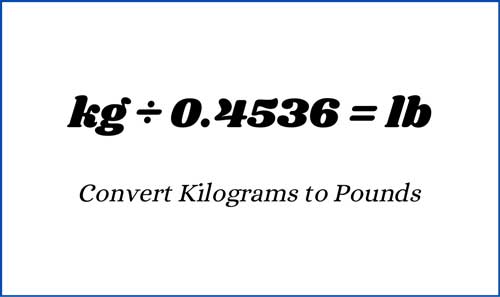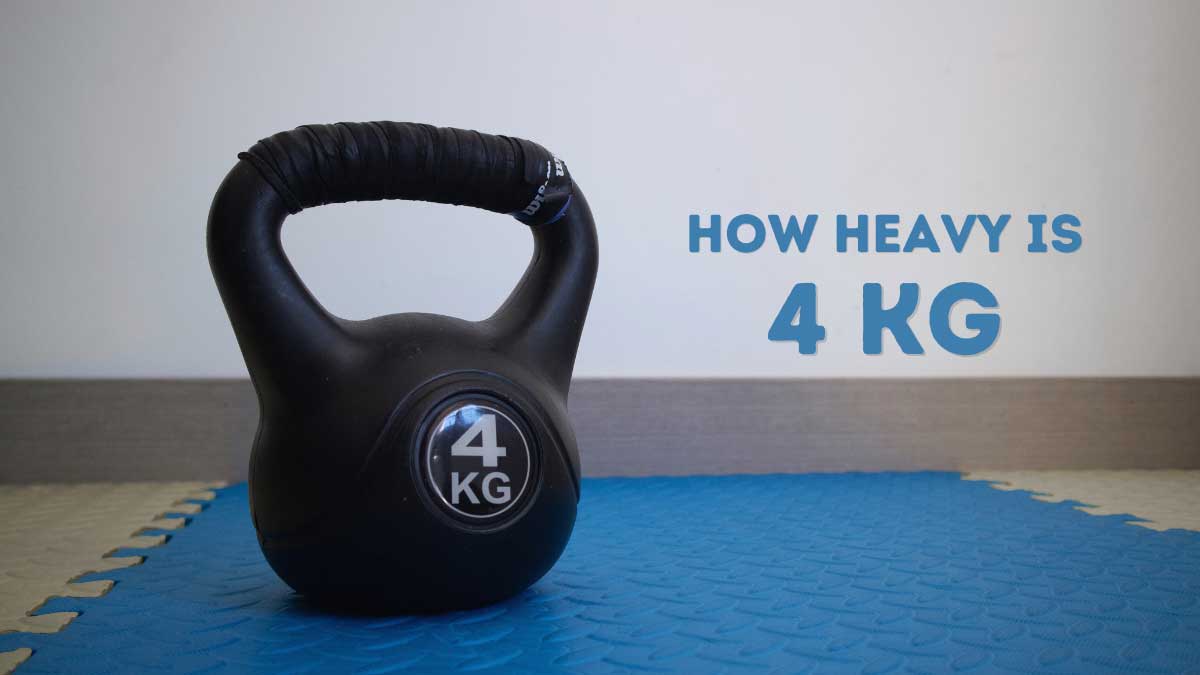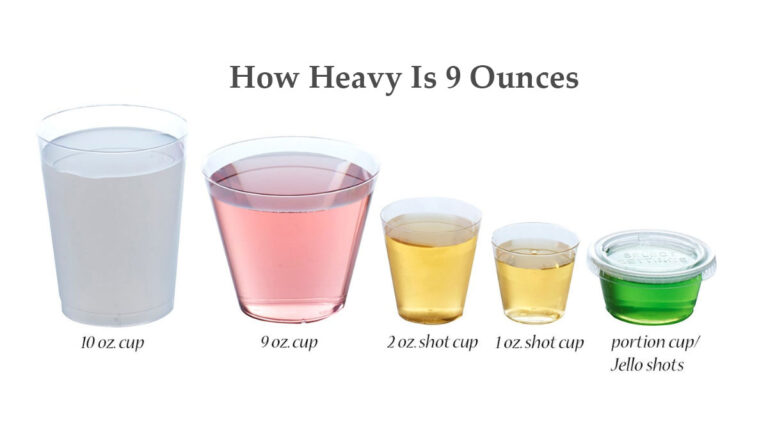How Heavy Is 4 kg? Everyday Comparisons Explained
Ever wondered just how heavy 4 kg really is? You’re not alone. Understanding weight measurements can be a bit tricky, especially when you’re trying to visualize them in everyday terms. Whether you’re weighing groceries, luggage, or even a pet, knowing what 4 kg feels like can be quite useful.
To put it in perspective, 4 kg is roughly equivalent to 8.8 pounds. Imagine carrying a medium-sized watermelon or a small bowling ball—both are around this weight. This comparison helps you grasp the concept of 4 kg in a more tangible way, making it easier to relate to your daily experiences.
In a world where weight plays a crucial role in everything from health to travel, having a clear understanding of these measurements can empower you to make informed decisions. So, let’s dive into the details and explore just how heavy 4 kg really is in various contexts.
Key Takeaways
- Understanding the weight of 4 kg is crucial for those dealing with everyday tasks like weighing groceries or packing luggage and is approximately equal to 8.8 pounds.
- The kilogram is the base unit of mass in the metric system, while a pound is commonly used in the British imperial and US customary systems, illustrating the need for conversions between these two systems.
- To convert kilograms to pounds, multiply the kilogram value by 2.20462. For example, 4 kg converts to approximately 8.818 pounds, aiding in precise calculations.
- Visualizing the weight of 4 kg is easier when using everyday items, such as a 22-inch LED TV or a box of sweets, which weigh around the same.
- Converting between kilograms and pounds is essential for international communication, providing clarity in scientific, engineering, and everyday applications.
- Understanding the global usage of the metric and imperial systems enhances your ability to navigate and adapt to different cultural and regional preferences effectively.
Understanding Kilograms and Pounds
When exploring the weight of 4 kilograms, understanding kilograms and pounds becomes essential. These units are fundamental in measuring mass across different parts of the world.

What Is a Kilogram?
A kilogram, often abbreviated as kg, is the metric system’s base unit for mass. It equals 1,000 grams or the mass of 1,000 cubic centimeters of water. Since 2019, its definition ties to the Planck constant, providing a precise scientific standard. Understanding kilograms assists in seamless navigation between metric and imperial systems, vital in international settings.
What Is a Pound?
A pound, denoted as lb, serves as a unit of mass in both the British imperial and United States customary systems. One pound comprises 16 ounces and corresponds to approximately 0.453592 kilograms. For conversions, recognizing that 1 kilogram equals about 2.20462 pounds simplifies metric to imperial transitions. This unit is notably prevalent in everyday contexts within the US and UK, influencing your perception of 4 kilograms as approximately 8.8 pounds.
Converting 4 kg to Pounds
Converting between kilograms and pounds helps you understand weights in both metric and imperial systems. 4 kilograms equals approximately 8.818 pounds, making it easier to gauge weight in everyday situations.
Formula for Kilogram to Pound Conversion
The formula to convert kilograms to pounds involves multiplying the kilogram value by 2.20462. This factor arises because 1 kilogram is equal to 2.20462 pounds. To transform a weight from kilograms to pounds, use this straightforward calculation, ensuring accurate conversions for various applications, from cooking to travel.
Conversion Example for 4 kg
To see the conversion in action, apply the formula: Multiply 4 kilograms by 2.20462 to calculate the equivalent in pounds. Specifically, you find that ( 4 , \text{kg} \times 2.20462 = 8.81848 , \text{lb} ). Rounded to three decimal places, 4 kilograms convert to 8.818 pounds, or in pounds and ounces, 8 pounds 13.088 ounces. This precision can be particularly useful for understanding weight measurements in contexts with distinct needs for metric and imperial systems.
| Kilograms | Pounds | Conversion Result |
|---|---|---|
| 4 | 8.818 lb |
This conversion provides clarity when navigating between different measurement systems, illustrating how slight differences in units impact weight perception.
Everyday Objects Weighing 4 kg
Understanding the weight of 4 kg is easier when you can compare it to everyday items. This section covers common household items, animals, and foods that weigh around 4 kg, helping you visualize this weight in practical terms.
Common Household Items
- 22-inch LED TV: A typical model weighs about 4 kg, comparable to the combined weight of two standard laptops.
- Box of Sweets: A large box filled with sweets can reach this weight, similar to holding four standard-size basketballs.
- Laundry Detergent: Bottles or boxes weigh between 4 and 4.5 kg, akin to carrying five 1-liter milk cartons.
- Himalayan Salt Lamp: This decorative lamp weighs around 4 kg, providing a steady grounding presence in your living space.
- Water: Exactly 4 liters of water equals 4 kg, reinforcing the simplicity of metric conversions.
- Newborn Baby: A healthy infant usually weighs 4 to 4.5 kg, comparable to a domestic cat’s weight.
- Domestic Cat: Depending on breed, cats typically weigh about 4 kg; however, a Siamese weighs less at 2.5 kg and a Maine Coon more at 11 kg.
- Harvest Moon Pumpkin: This variety often weighs between 2.5 to 4 kg, similar to other produce like eggplants.
- Large Quantity of Sweets: Comparable to the sweets box, this can also tip the scale at 4 kg.
- Four Liters of Water: Used frequently for cooking and drinking, it provides a familiar comparison for this weight.
Why Convert Kilograms to Pounds?
Converting kilograms to pounds is essential in many contexts, from international communication to practical everyday scenarios. It’s crucial for understanding weights across different measurement systems.
Practical Applications
Converting kilograms to pounds facilitates communication and precise measurement, especially in diverse fields:
- International Communication: Smooth interaction between regions using different systems. For instance, the US and UK prefer pounds while several other countries use kilograms.
- Scientific and Engineering Applications: Essential in fields requiring precise measurements. Scientists often standardize findings by using universally understood units, such as pounds when conveying data to an audience in the United States.
- Everyday Usage: Aids in activities like shopping or cooking. Recipes from the UK might use ounces and pounds, requiring conversions for accurate results.
Global Usage and Preferences
Understanding conversions between kilograms and pounds reflects the preferences and practices of different regions:
- Metric System Dominance: The metric system, using kilograms, is prevalent in most countries, providing a universally understood standard.
- Imperial System in the US and UK: These regions commonly use pounds and ounces for weight, necessitating conversions for compatibility with global partners.
- Cultural Preferences: Some cultures may express weight differently, such as in stories or legal documents, where context requires familiarity with both systems.
Converting between these units enhances your ability to navigate international settings seamlessly and makes global communication more effective.
Conclusion
Understanding the weight of 4 kg in everyday terms can greatly enhance your ability to navigate both personal and professional contexts. By visualizing 4 kg through familiar objects like watermelons or TVs, you gain a practical sense of this measurement. This comprehension is vital, especially when converting between metric and imperial systems, which is a common necessity in our interconnected world. Whether you’re planning a trip or engaging in international business, knowing how to accurately convert and relate weights ensures smoother interactions and precise communication. Embrace this knowledge to confidently handle weight measurements in any situation.







